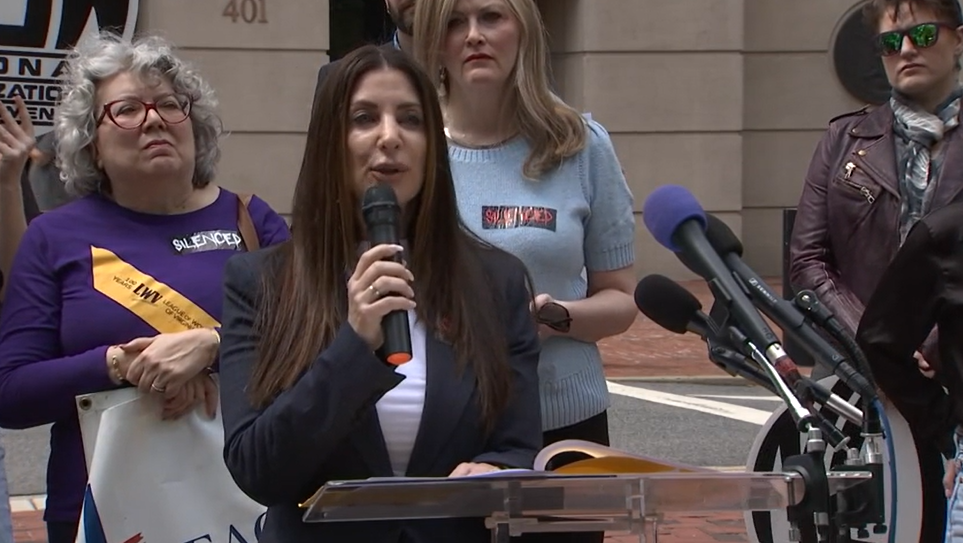Baltimore Mayor Sheila Dixon resigned Wednesday as part of a deal with prosecutors, ending a three-year tenure that began with promise but unraveled amid embarrassing allegations that she stole from the poor.
Dixon, 56, was convicted last month of misappropriating about $500 in gift cards donated to the city for distribution to needy families during her time as City Council president. Had she not agreed to step down, she could have been thrown out of office.
On Wednesday, she entered an Alford plea to a charge of perjury, meaning she admits there is enough evidence to convict her on that charge but does not acknowledge guilt. Her resignation will take effect Feb. 4, her sentencing date.
In exchange, prosecutors and Judge Dennis M. Sweeney agreed that Dixon will receive probation before judgment on both counts, meaning the convictions will be wiped off her record if she complies with several conditions, including a $45,000 charitable contribution and 500 hours of community service.
Dixon will also be barred from seeking employment with the city or state for four years. However, she would be free to run for public office again after that time, as long as she complies with the terms of her probation. The deal also allows her to keep her city pension, which she would have had to forfeit with a conviction on her record.
This is a result that makes a lot of sense for Miss Dixon and the city of Baltimore," said Arnold M. Weiner, the mayor's lead attorney. However, he added,I think the people of Baltimore would have been better off if she'd been able to remain as mayor.''
Dixon had faced two separate criminal trials. The first, which began in November, dealt with allegations that she stole gift cards intended for needy families. Her trial on two counts of perjury was scheduled for March.
Local
Washington, D.C., Maryland and Virginia local news, events and information
In pleading guilty to one of the perjury counts, she acknowledged that prosecutors would present evidence that she received thousands of dollars in cash, fur coats, travel and other gifts from Ronald H. Lipscomb, a prominent developer who received tax breaks from the city.
Dixon and Lipscomb dated in 2003 and 2004. But she did not report any gifts from Lipscomb despite a requirement that she disclose gifts from people doing business with or regulated by the city.
As Deputy State Prosecutor Thomas M. McDonough read from a statement of facts detailing how Lipscomb gave her cash to pay her American Express bill after a shopping spree in Chicago, Dixon blurted out, ``Your honor, those things are not true.''
When asked later by Sweeney whether Dixon agreed with the statement of facts, Weiner said that under the Alford plea, he acknowledged that ``the state could produce evidence that established those facts, but we do not agree to them.''
State Prosecutor Robert A. Rohrbaugh said outside the courthouse that it was time for the case to end so the city could move forward.
"I would hope it would send a message to politicians, that even if you commit what some would consider a minor offense, you're going to lose your job,'' he said.
Dixon has been mayor since January 2007, when she took over for fellow Democrat Martin O'Malley after he was elected governor. She was the first woman to hold the job, and she easily won election that fall to a full four-year term.
After her conviction, Dixon gave every indication that she would fight to stay in office. Her attorneys were scheduled to argue Wednesday that she should get a new trial. Rohrbaugh said outside court that Dixon's attorneys first contacted him about a possible plea about a week ago and that negotiations only began in earnest on Monday.
The only public hint that Dixon had changed course came in an impromptu interview with The Baltimore Sun published in Wednesday's editions. She spoke with regret about her romance with Lipscomb.
City residents were surprised and saddened by Wednesday's news. Kenny Scott, 49, a Dixon supporter, said he didn't think she deserved to be forced from office.
"I thought she would hold on until her term was up,'' Scott said.
Pless B. Jones, president of the Maryland Minority Contractors Association and head of Baltimore-based P+J Contracting Co., blamed racism and politics for Dixon's fall. The mayor is African-American.
"If it had been somebody else, a different color, this would not have gone on,'' he said.
City Council President Stephanie Rawlings-Blake, a Democrat, will replace Dixon.
State Delegate Curt Anderson, D-Baltimore, said he believed the case had become a distraction to the city.
"I think a lot of people were concerned that it was taking up too much energy, too much time, too much attention, and diverting time and attention and energy from the things that Baltimore city really needs to get done,'' Anderson said.
Associated Press writers Kasey Jones and David Dishneau in Baltimore and Brian Witte in Annapolis, Md., contributed to this report.
(Copyright 2010 by The Associated Press. All Rights Reserved.)
Listen to the complete story at wamu.org
Copyright 2010 WAMU 88.5 - American University Radio. All Rights Reserved.



